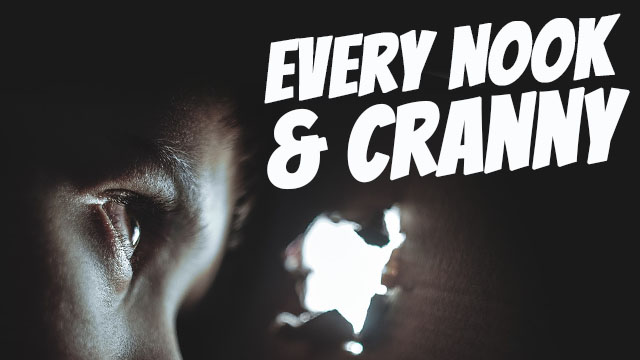AE 660.1 – Expression: Go Viral
Learn Australian English in this Expression episode of Aussie English where I teach you how to use to GO VIRAL like a native speaker.
AE 660.1 – Expression: Go Viral transcript powered by Sonix—easily convert your audio to text with Sonix.
AE 660.1 – Expression: Go Viral was automatically transcribed by Sonix with the latest audio-to-text algorithms. This transcript may contain errors. Sonix is the best audio automated transcription service in 2020. Our automated transcription algorithms works with many of the popular audio file formats.
Smallpox is an ancient, deadly disease that has existed for 3000 years. An estimated 300 million people died from smallpox in the 20th century alone. It was fatal in up to a third of people infected. Early symptoms include high fever and fatigue. This takes between seven and 17 days after exposure. At this point, the disease becomes contagious. The virus then produces a distinctive rash, particularly on the face, arms and legs.
The most infectious period is during the first week of illness. The resulting spots become filled with clear fluid and later pus and then form a crust which eventually dries up and falls off. The person remains contagious right up until the last scab is removed. The virus spreads through person to person contact and saliva droplets in an infected person's breath.
G'day, guys and welcome to Aussie English. My objective here is to teach you guys the English spoken Down Under. So, whether you want to speak like a fair dinkum Aussie or you just want to understand what the flipping hell we're on about when we're having a yarn, you've come to the right place. So, sit back, grab a cuppa and enjoy Aussie English.
G'day, you mob! What's going on? Welcome to this episode of Aussie English. I hope you guys are all healthy, I hope you're surviving the quarantine, especially if you're in Australia. I hope you're doing well, I hope you are, yeah, safe and sound, right? I hope your families are well as well. I hope you've been studying as well. I tell you what, I've been trying to work my ass off reading all of the books that I've bought and studying Portuguese whilst I have been locked up inside.
So, hopefully you guys are taking the chance to work your asses off and improve your English. So, g'day, guys, welcome to the Aussie English podcast. The number one place for anyone and everyone who wants to learn Australian English whilst also receiving a rather large dose of Australian culture, history, news and current affairs slang, everything like that.
Don't forget, guys, if you would like the transcripts and the downloads for all of these podcast episodes, you can sign up for the Premium Podcast www.aussieenglish.com.au, and if you would like the podcast as well as all of my other courses inside of the Academy, you can sign up for the Academy at, again, www.aussieenglish.com.au. There's loads of content in there, guys. So, today, now, at the moment it's the perfect opportunity to sign up and start working on your English if you're not already in there.
Alright. So, the scene at the start, there was a video from News Corp Australia on YouTube that'll be linked in the transcript. So, go check out the full video on YouTube and subscribe to their channel, but it was about smallpox and how much of a dangerous and deadly disease smallpox was back in the day, although now it's been cured, thankfully, due to the invention of a vaccine decades and decades and decades ago.
So, today it obviously ties in with the expression, which is 'to go viral', right? If something goes viral, it gets wide spread, everyone learns about it. It tends to be something on the Internet. We'll get into that in a bit, but in the Aussie English Fact episode today, I wanted to talk about the first pandemic to occur in Australia, which was related to smallpox and dates back to the year 1789.
At least that's the first one that was recorded by Europeans. We'll talk about that in the Aussie English Fact. But now, let's get into this episode. Alright. So, the Aussie joke, and I had to make this a viral joke, right? A joke about viruses.
I went to the chemist today and asked the assistant what kills the Corona virus? And she replied to me, ammonia cleaner. And I said, Ah, I'm sorry. I thought you worked here.
Do you get it, guys? Ammonia cleaner. Ammonia cleaner. It sounds like 'I'm only a cleaner' right? I'm only a cleaner. So, ammonia cleaner. Ammonia is the chemical you can use to, I guess, bleach things, right? To clean things, to make sure that surfaces are safe and, you know, cleared of all viruses and bacteria and germs. But it sounds like you're saying the phrase 'I'm only a cleaner'. Ammonia cleaner. I'm only a cleaner.
It's so close. So, I'll repeat the joke again for you, guys.
So, I went to the chemist today and I asked the assistant what kills the Corona virus? She replied to me, ammonia cleaner. And I said, Ah, sorry, I thought you worked here.
Right? So, the person thinks she said, I'm just a cleaner. I'm only a cleaner and therefore doesn't work at the pharmacy, right? So, she doesn't know what kills the coronavirus, but she's actually saying 'ammonia cleaner' is... that's the stuff that does it.
Alright. Bad joke. Bad joke, but I hope you enjoyed it. So, today's expression is 'to go viral', 'to go viral'. Let's go through the definitions of these two words, 'go' and 'viral'.
So, generally, 'go', the most common use of this word is going to be to move from one place to another, right? I went to the shops. I'll go to the pool. I'll go to my parents house, right? Move from one place to another.
It could also be leave or depart a location. So, you might need to go, right? So you've got to go home, but you can just say, 'ah, sorry, guys, I've got to leave. I've got to go, I must go. I need to go', but in this sense, 'to go viral', 'go' here means to pass into or be in a specified state, especially an undesirable one.
So, it's where you've changed states, you've become something else. So, for example, if you leave food out of the fridge, it goes bad. It goes off it. Goes rotten, right? The food becomes bad, it becomes off. Although we would say 'go off' much more often than 'become off', right? Or become rotten. Most commonly, we would say 'go rotten'.
What about the word 'viral'? So, 'viral', generally, means of the nature of caused by or relating to a virus. So, Coronavirus is a viral infection, it's an infection that is caused by a virus or viruses. Antibiotics treat bacterial infections, not viral infections. However, in the expression 'to go viral', we're talking about a video, an image, some sort of piece of information on the Internet that gets circulated rapidly and widely from one user to another, right?
So, like a viral ad campaign, a viral meme, a viral post, something that gets spread really quickly. So, if something goes viral, you probably know the expression now, what it means, if a video, an image or a story goes viral, it spreads quickly and widely on the Internet through social media or maybe via e-mail, right? It goes viral. So, this is a relatively recent expression in the Oxford English Dictionary.
Its earliest citation was actually dated to 1989 and it was used in the sense of involving the rapid spread of information and the earliest citation of the full expression 'go viral', not just the word 'viral', is as recent as 2004. And the quote was 'their petition also went viral, gathering half a million signatures in a few weeks'. So there you go, this is a very, very recent expression.
It might only be 16 years old. How crazy is that? So, as usual, guys, let's go through some examples of how I would use the expression 'to go viral'.
Example number one: I work my ass off creating content for YouTube, right? So, imagine you're a YouTube content creator, you're always working on videos, you publish them, it's how you make your income. It's how you earn a crust, make a living. So, you create videos, you record them, you edit them, you upload them, and you hope that your videos get some traction and that they'll get noticed by the YouTube algorithm and then shown to people who in turn will hopefully share these videos with their friends on social media.
So, if you make a video and it ticks all the right boxes for YouTube and it hits and it's a hit with the viewers, they share it everywhere and it racks up millions of views in the first week. It's gone viral. It's been shared like crazy, it's spread rapidly through the population, similar to a virus, but online and in terms of information, the video went viral. The video has gone viral.
Example number two: imagine you're a journo, right? A journalist working for a newspaper or some sort of online media company. And you get a hot tip on a really interesting and important news story. So, you do a bunch of interviews about their story, you know, you want to get the information from the source. You want to get it from the horse's mouth, you don't want it to be hearsay, you want to interview the person who has this information.
You then write up an article and when it gets published on the media website or perhaps inside of a newspaper, it gets shared like crazy online or perhaps by word of mouth if it's in a newspaper. Other media outlets pick it up and it spreads like wildfire. It goes viral. The story is shared widely. the story goes viral.
And the very last example here, number three: so memes are something that often go viral online, right? The term 'a meme' was coined by Dr. Richard Dawkins when he was referring to an element of a culture or system of behaviour that gets passed on from one individual to another by imitation or by non-genetic means. So, that's a bit of a mouthful. But effectively, it's like having culture passed on from generation to generation. It's not genetically passed on, it's memetically passed on because it's a meme as opposed to a gene.
In terms of the Internet, though, we kind of took this term from Richard Dawkins, a meme, and it came to mean any image, video or piece of text that is typically funny or humorous in nature and is copied and spread widely on the Internet, often with slight variations, right? So, if you're on social media, you're surely going to know of loads and loads of different memes, right?
Of people, of famous people, of events, perhaps of animals like cats, memes are everywhere online. So, if you create a meme one day, you know, maybe it's a picture of a cat and you make some funny line and start sharing it with your friends and family on Facebook, you think it's a total pisser, they think it's funny. They think it's hilarious. They start sharing it and the meme goes viral. It spreads like crazy, it spreads like wildfire. It spreads like the plague, right? It goes viral.
So, now, guys, hopefully you understand what the expression means 'to go viral'. It's of information on the Internet that spreads quickly and widely throughout things like social media and emails. You know, it could be a video, an image, a story. Those are all things that go viral. And similar expressions include things like 'to spread like wildfire', right? Obviously, if you spread like wildfire, as in like a bushfire, you spread incredibly quickly. You know, I guess like a bushfire would burn through a forest very quickly. Information can spread like wildfire. And another expression that I know of that's referring to disease, but it's a little bit different is 'to avoid someone or something like the plague'.
Right? If you avoid something like the plague, it's that you try and keep away from it as much as possible. You try and stay away, you try and avoid that thing as if it were the plague itself, right? A horrible disease that killed a lot of people in Europe hundreds of years ago. So, you avoid it like the plague. So, maybe if I wanted to make a sort of joke about how much Noah, my son, hates carrots, you know, he doesn't like carrots at all. He he refuses to eat carrots, I might say, 'man, he avoids carrots like the plague, he hates them. He won't go near them, he won't touch them, right?
And if everyone finds out about that information and starts sharing it, it goes viral. It spreads like wildfire. Alright. Let's go through a little listen and repeat exercise, guys, where you can practice your pronunciation and then we might talk about the origin of the expression 'Bless you' in English and why we say that when people sneeze and then we'll finish up.
Alright. So, listen and repeat after me.
To.
To go.
To go viral.
To go viral.
To go viral.
To go viral.
To go viral.
My Facebook post went viral.
Your Facebook post went viral.
His Facebook post went viral.
Her Facebook post went viral.
Our Facebook post went viral.
Their Facebook post went viral.
Its Facebook post went viral.
Good work there, guys! So, without getting into it too deeply in terms of the pronunciation there, you can sign up for my Australian English Pronunciation course if you want to learn more about Australian pronunciation. That'll be on www.aussieenglish.com.au/courses, but in that phrase, 'my Facebook post went viral', 'your Facebook post went viral', there are quite a lot of stop consonants at the ends of words like 'Facebook', 'post,' 'went', and you might notice that they aren't fully pronounced.
They aren't released really, really clearly, right? You're not saying 'my Facebook post went viral', you're muting those consonants quite often, not releasing them because there's a consonant after them, ok? So, have a listen.
My Facebook post went viral. Your Facebook post went viral.
So, make sure you sign up for my Aussie English Pronunciation course, guys, if you want to learn more about the secrets of pronunciation in English and reduce your accent and sound much more like an Aussie.
Alright. So, before we finish up, I wanted to talk about the expression 'bless you'. And the full expression is 'God bless you', right? So, it's a trivial and common phrase that's used in English, most often used by Christians when wishing someone well. So, if I went to a party and there were some Christians there, they might say, 'bless you, Peter', but even more commonly in English and not just used by Christians, it's said as a show of good manners when someone sneezes in front of you.
So, if someone sneezed in front of me, you know, they went 'aaaachoooo', I would say to that person, 'Oh, bless you', but the average person doesn't know why we say that in English. We just get taught to do it and, you know, get told that's good manners. You need to do that. So, why on earth do we say 'bless you' or 'God bless you' when someone sneezes?
The true origins are a little murky, but there are quite a few interesting guesses at the origin of the phrase 'bless you'. The most popular theory is that the phrase is a shortening of 'God bless you' and that it originates from the city of Rome around the 6th century when the bubonic plague was ravaging Europe. So, sneezing at the time was one of the plagues primary symptoms and the Pope at the time, Pope Gregory the I, is believed to have told people to offer the tiny prayer 'God bless you', after they heard someone sneeze in order to try and protect that person from illness and death.
An alternative and more superstitious theory is that the expression originates from the ancient belief that when someone sneezes, they might accidentally expel the spirit from their body. And unless you said 'God bless' you to that person, the spirit would leave. Whereas if you were to say it, the spirit goes back inside the body, saving the person.
Other cultures believe that sneezing allowed evil spirits out of the body, leaving others exposed to these wandering spirits. So, uttering the words 'bless you' or 'God bless' you would protect both the sneezer and those around them from those evil spirits. And lastly, there's a rumour that when you sneeze, your heart momentarily stops beating and that you say 'bless you' as a way of getting it going again and saving the sneeze from death.
So, I don't know about you, guys, but I'd put my money on the first example being the true one originating in Rome in the 6th century when the plague was ravaging Europe. Whatever the truth may be, though, they're all interesting theories as to why English speakers say 'bless you' when someone sneezes.
And it's funny because a lot of other languages will actually say things like 'health'. But translated, for instance, in Portuguese you would say 'saúde', which is health, right? You're wishing the person good health.
Anyway, guys, that's it for today. Thanks for joining me. Don't forget to check out the Aussie Fact episode today where I'll be talking about Australia's first pandemic. Again, I wish you guys a healthy and safe time during the lockdown during this period of Coronavirus.
Loads of uncertainty. Who knows what's going to happen tomorrow, let alone next week or next year, but I hope you guys are safe and sound and I wish you all the best. See ya!
G'day, mate! Thanks for listening to the Aussie English podcast. If you'd like to boost your English whilst also supporting the podcast and allowing me to continue to bring you awesome content, please consider joining the Aussie English Academy at www.aussieenglish.com.au, you'll get unlimited access to the premium podcast as well as all of my advanced English courses. And you'll also be able to join three weekly speaking calls with a real English teacher. Thanks so much, mate. And I'll see you, soon.
Quickly and accurately automatically transcribe your audio audio files with Sonix, the best speech-to-text transcription service.
Sonix uses cutting-edge artificial intelligence to convert your mp3 files to text.
Rapid advancements in speech-to-text technology has made transcription a whole lot easier. Automated transcription can quickly transcribe your skype calls. All of your remote meetings will be better indexed with a Sonix transcript. Automated transcription is getting more accurate with each passing day. Do you have a podcast? Here's how to automatically transcribe your podcasts with Sonix. Manual audio transcription is tedious and expensive. Automated transcription is much more accurate if you upload high quality audio. Here's how to capture high quality audio.
Sonix uses cutting-edge artificial intelligence to convert your mp3 files to text.
Sonix is the best online audio transcription software in 2020—it's fast, easy, and affordable.
If you are looking for a great way to convert your audio to text, try Sonix today.
Here's what you get when you sign up!
- Read while you listen using the Premium Podcast player.
- Understand every word in every episode.
- Download all PDF transcripts and MP3s for 600+ episodes.
- Get access to bonus member-only episodes.












Responses